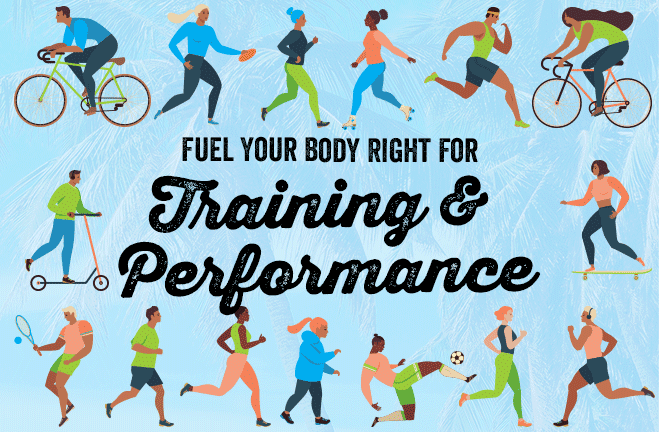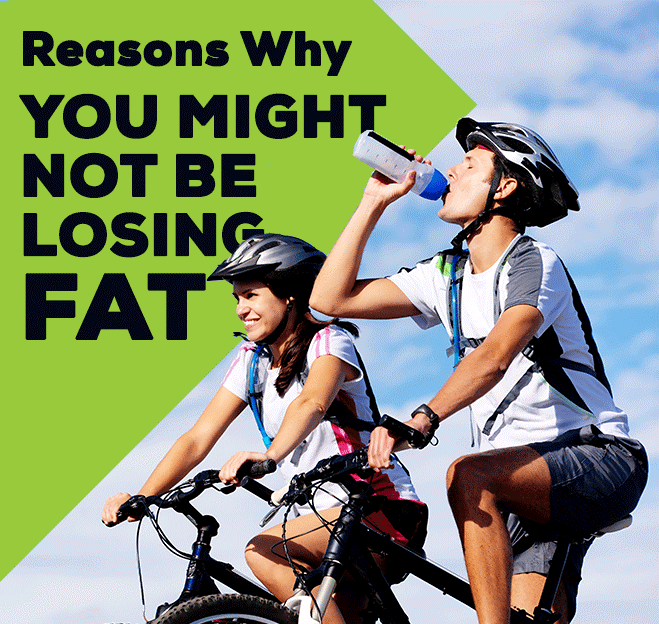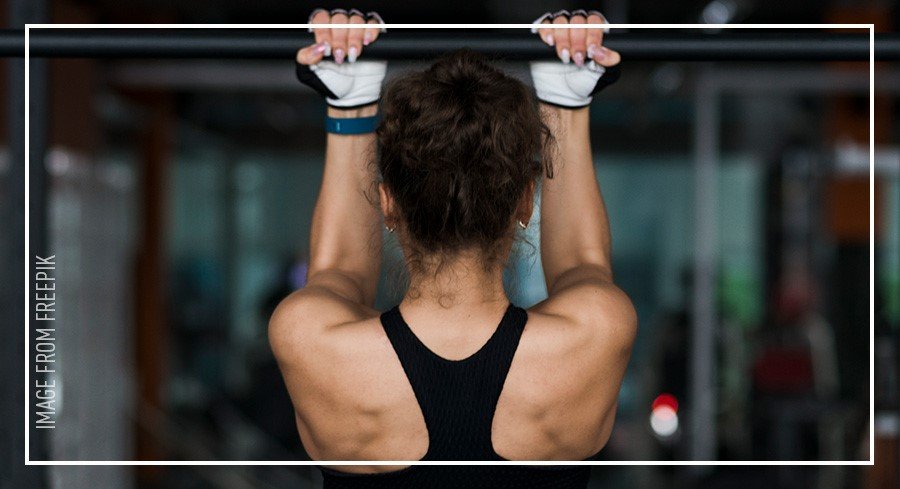 Should I eat before I work out? … I’m just not hungry in the mornings … What about fasted cardio? … What are the best snacks to eat to optimize my lean mass gains before my session?
Should I eat before I work out? … I’m just not hungry in the mornings … What about fasted cardio? … What are the best snacks to eat to optimize my lean mass gains before my session?
As most things in the nutrition world, there seems to be so much conflicting information out there regarding the “right protocol” for pre-training nutrition. Over the years we have seen countless research studies performed on both cardio, strength and mixed training regimes, working toward finding the most optimal nutrition protocols to enhance performance, recovery and body composition goals. So rather than talk in research terms, I want to summarise all this info to bring you some realistic and practical ways to optimize your own training, performance, recovery and general health, through pre-training nutrition.
First and foremost, the most important thing to note is that what you “should” do for your own pre-training nutrition should be individualized to YOU: your nutritional requirements, your goals, your training volume/intensity/duration and your lifestyle. Talking to an experienced dietitian in this area can be a great starting place to ensure you are taking the right steps to fueling your training for YOU. In saying that, today we are going to discuss some general recommendations, tips and tricks that may help you get started.
Having fuel on board at the start of your training session is going to allow your body to easily access the fuel it needs to burn throughout a workout. Think about the old analogy of petrol in a car – when we have enough petrol in the tank, our car can run – no problem! The most easily accessible petrol, or fuel, that your bodies can utilize are carbohydrates. Therefore, pre-training nutrition generally focuses on ensuring we have enough carbs on board – either circulating in our blood OR stored as glycogen in our liver and muscles – to call upon during the session. Have you ever done a long endurance event or session and felt like you have ‘hit a wall’ (or seen this on TV)? This feeling of running out of all energy is essentially our bodies having exhausted all of our carbohydrate, or glycogen, stores in the body. Not ideal when we are trying to hit a PB!
Now, it’s important to place this situation into perspective – most of us don’t get up at 4am to complete a full marathon before hitting our 9-5 now, do we? So, do we need to pre-fuel our bodies for our morning HIIT session, strength workout or reformer class? Unfortunately, there is no hard and fast rule and this is really going to depend on you as an individual and your circumstances…
Let’s explore a few scenarios:
For the energizer bunny who is up at the crack of dawn to break a sweat in a HIIT or circuit class…
- If you are one who always trains fasted because it’s “too early to eat” and you can complete your high intensity workouts without running out of puff, fantastic! You are likely adequately fueled from the evening before and may not necessarily perform better with a pre-workout snack.
- If you are unsure if you should eat or feel like you do get tired by the end of your session, trial a pre-workout snack at least 45-60 minutes before your session. It can be as little as 1-2 Medjool dates or 1/3 cup of orange juice mixed with 1/3 cup of water. This carbohydrate source may be just enough to assist your body from smashing your sessions (and burning extra calories while you’re at it) rather than simply surviving the workout!
- Finally, don’t forget about your dinner the night before. If you are one who avoids carbohydrates in the evenings, you may be undermining your ability to store sufficient glycogen to get you through your morning workout. If you think this may be you, trial adding some complex carbohydrates to your dinner plate – choose to fill ¼ of your plate with brown rice, quinoa, whole meal pasta, legumes, sweet potato or a cob of corn.
For the weight-lifting warriors who smash out a heavy gym session on a regular basis…
- If your resistance training workouts are less than 90 minutes in length, you are likely not going to threaten your glycogen availability during your training session. In layman’s terms, this means it’s unlikely you need to specifically fuel your body with carbohydrates before your workout. If you stick to eating your regular meals such as a mixed-macro meal 2-3 hours before your weights, you will still be in a “fed state” for your workout. Circulating nutrients won’t be depleted until 4-6 hours after your meal and will be sufficient to get you through your resistance training.
- Training weights early morning? Again, you may feel like you have sufficient glycogen from last night’s meal but why not trial a pre-workout snack and note if you feel more energized throughout your workout. If your sessions are not excessively high in intensity, you may wish to include some protein along with your carbohydrates beforehand. Some peanut butter on toast a simple milky coffee may do the trick!
- What about protein intake to maximise lean mass gains? The ‘International Society of Sports Nutrition Position Stand’ on protein and exercise explains “the optimal time period during which to ingest protein is likely a matter of individual tolerance, since benefits are derived from pre- or post-workout ingestion; however, the anabolic effect of exercise is long-lasting (at least 24 h), but likely diminishes with increasing time post-exercise.” Essentially, you can choose whether to have your protein before or after your workout to optimize your lean mass gains however just don’t wait too long to eat it afterwards as gains will be less optimal with the more time you wait post exercise.
For the Zen yogis and walkers who want to connect with themselves or with nature for their exercise…
- Lower intensity exercise doesn’t typically require any specific pre-workout nutrition. General recommendations would be to fuel as you normally would throughout the day, with no requirement for extra calories or carbohydrates.
- If you are practicing a morning yoga session, you may find that practicing on an empty stomach actually assists you to create more room in your abdominal cavity to elicit deeper breathing and may assist with achieving a deeper meditation to complete your practice. Please note, I would not recommend trialing this if you have issues with blood sugar imbalances or if you are practicing a hot/Bikram yoga class without first consulting a healthcare professional.
For the endurance athlete or the weekend warrior that trains multiple sessions per day …
- You are the group that needs to ensure sufficient fuel is on board when you train and compete! Foods to choose prior to exercise include familiar, carbohydrate-rich foods that are well tolerated and easily digested (think breads, grains, cereals, fruits and veggies).
- You can also include small amounts of lean protein in your meal 2-4 hours before the session (40-60g lean meat; ¾ cup low fat yogurt; ½ cup cottage cheese; an egg) however try to stick to carbs or liquid meals (fruit smoothies; meal replacement drinks) in the hour leading up to the event – especially if you get butterflies in your tummy!
- Try to avoid high fat foods (creamy soups/sauces; fried food; chips; chocolate) as they take a long time to digest and may cause you to feel ‘sick’ or heavy.
- A rule of thumb is to always practice your pre-performance nutrition during training, before delving into them on competition day. This is your best bet to understand how your individual body reacts to different foods.
For EVERYBODY out there who moves their body throughout the day …
- Hydration is one of the most vital and underestimated factors in all types of training!
- Whether you are working out first thing in the morning, late at night, at extremely high or low intensities, it is always important to ensure you are going into your session in a hydrated state. Get drinking folks!
A common mistake in training nutrition – are you undermining your body composition goals?
One of the most common mistakes I see in practice working at MeasureUp is under fueling the body for the amount of training an individual does. I am not talking specifically about the meal or snack you eat before your training session, but rather the total caloric intake for the day.
This is commonly seen in ‘challenges’, where we have a set amount of weeks or months to achieve the lowest possible body fat percentage. So, we naturally go gun-ho at restricting our calories to lose weight, without sufficiently fueling our muscles to maintain our lean mass. Although we achieve weight loss on our scales (woohoo!), often we find that a proportion of this weight that is lost is lean mass, rather than pure fat loss.
This is one of the considerations we need to keep in mind when planning how we are going to appropriately fuel our body for the volume of training we do. A dietitian can assist you with balancing this in practice. So, if you are feeling lost when it comes to how much to eat for ‘fat loss’ vs ‘weight loss’, feel free to book in to see me for a dietetic consultation at MeasureUp!
JORDAN KAIN (APD, MND, Exspsc)
Dietitian and Exercise Scientist
References:
https://jissn.biomedcentral.com/articles/10.1186/s12970-017-0177-8
https://www.sportsdietitians.com.au/

